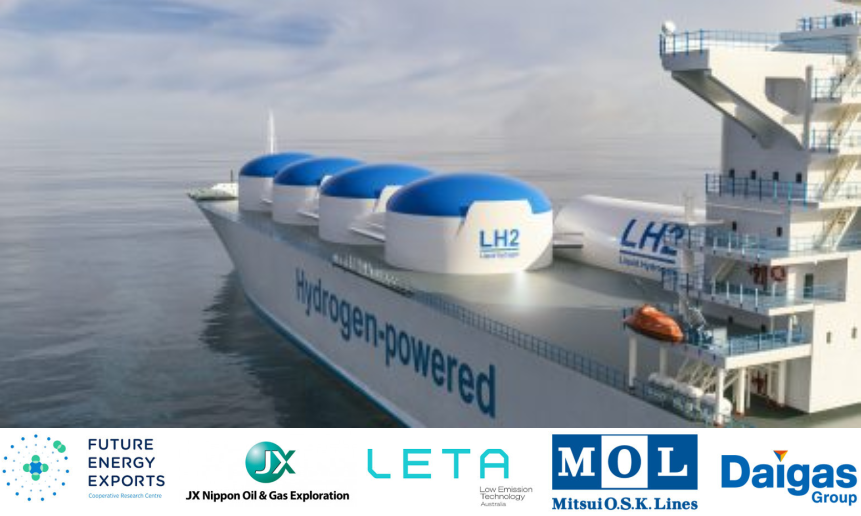
Future Energy Exports CRC Limited (“FEnEx CRC”) has joined forces with esteemed partners, including JX Nippon Oil & Gas Exploration Corporation (“JX NOEX”), Low Emission Technology Australia (“LETA”), Mitsui O.S.K. Lines, Ltd. (“MOL”), and Osaka Gas Co., Ltd. (“Osaka Gas”), to embark on the “LP Technology R&D Project.” This collaborative endeavor seeks to spearhead the development of efficient and secure solutions for the large-scale maritime transport of CO2.
The LP Technology R&D Project, a joint initiative led by FEnEx CRC, University of Western Australia, Curtin University, Seoul National University, and deepC Store Pty Ltd, is set to unfold in stages marked by meticulous research and innovative testing. This landmark project aims to explore the behavior and boil-off characteristics of liquid CO2 under varying operational conditions and ascertain the influence of non-CO2 components.
Objectives of the LP Technology R&D Project:
- Laboratory-Scale Experiments: Rigorous experiments employing cutting-edge laboratory facilities, including pressure cells and boil-off apparatus, will decipher the phase behavior and boil-off properties of liquid CO2 during dynamic operational scenarios. The project will also delve into the implications of non-CO2 elements.
- Enhanced Engineering Models: The initiative will integrate newly gathered data into tailor-made engineering models for CO2 boil-off and phase behavior calculations. These models, developed by FEnEx CRC, will be instrumental in testing the validity of existing software predictions with the newfound data.
- Pilot-Scale Demonstration: The project will culminate in the design and execution of pilot-scale Carbon Capture, Utilization &/or Storage (CCUS) demonstrations. These endeavors will validate engineering models anchored to lab data, paving the way for future large-scale implementation.
The prevailing design of liquefied CO2 vessels, constrained by operating pressures and temperatures (18 bar, -26°C), limits their storage capacities. To surmount this challenge and mitigate costs, the initiative proposes embracing lower pressures and temperatures (roughly 7 bar, -49°C). Although promising, this approach has not been previously tested for maritime CO2 transportation. Consequently, operational risks will be addressed to ensure technical viability.
Professor Eric May, CEO & Managing Director of FEnEx CRC, underscores the significance of this venture for Australia’s decarbonization journey, while Yasuto Ariga, Executive Officer at JX NOEX, highlights the potential of international collaboration to unlock novel CO2 transport methods. Mark McCallum, CEO of LETA, emphasizes the project’s alignment with emissions reduction objectives, and Yasuchika Noma, Executive Officer at MOL, expresses enthusiasm for ushering in a lower-carbon future. Norio Hatanaka, Associate Director at Osaka Gas, underscores the critical role of low pressure and low temperature liquefied CO2 technology in the quest for carbon neutrality.
This collaborative effort aims to position Australia and the broader Asia-Pacific region at the forefront of advancing CO2 shipping technologies. With the possibility of revolutionizing large-scale CO2 transportation, this initiative resonates with global aspirations for a sustainable future.

